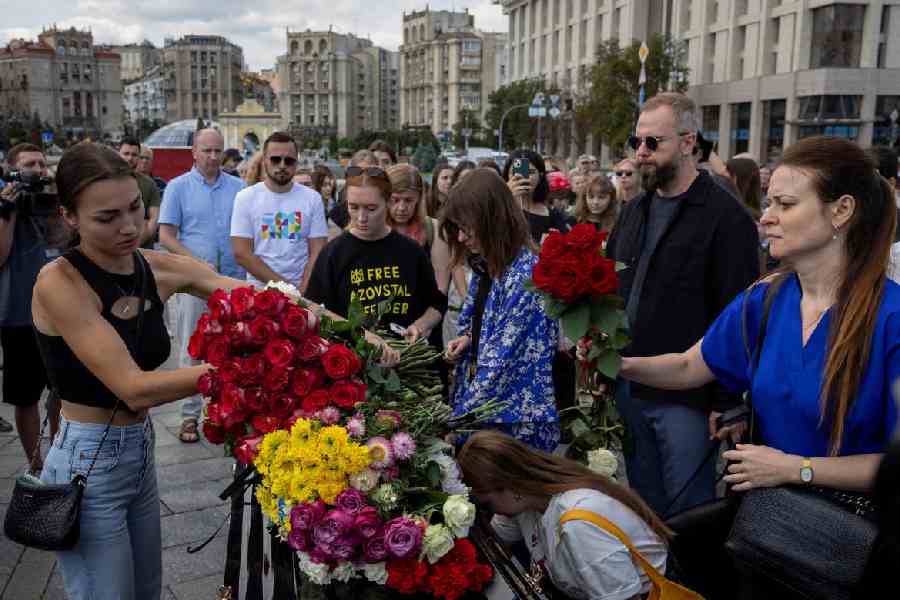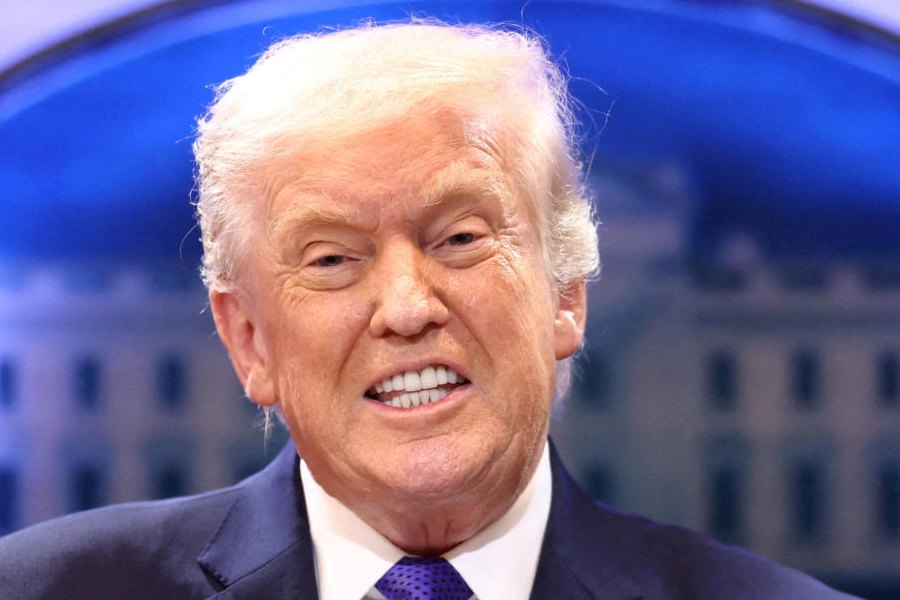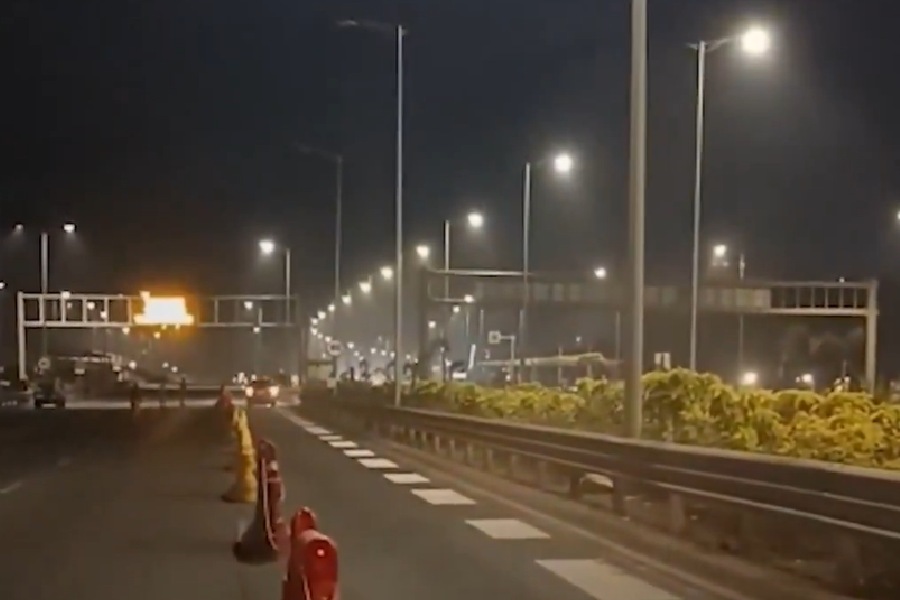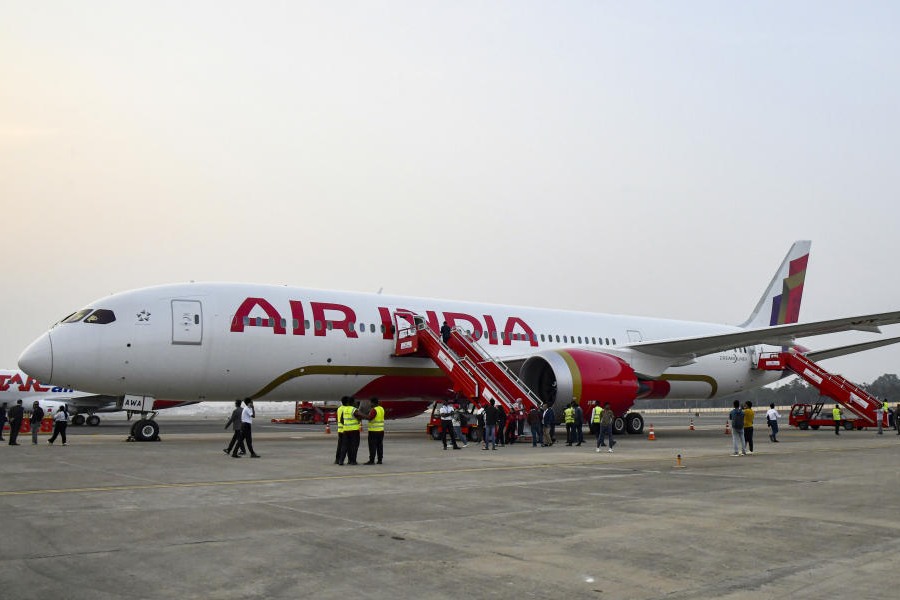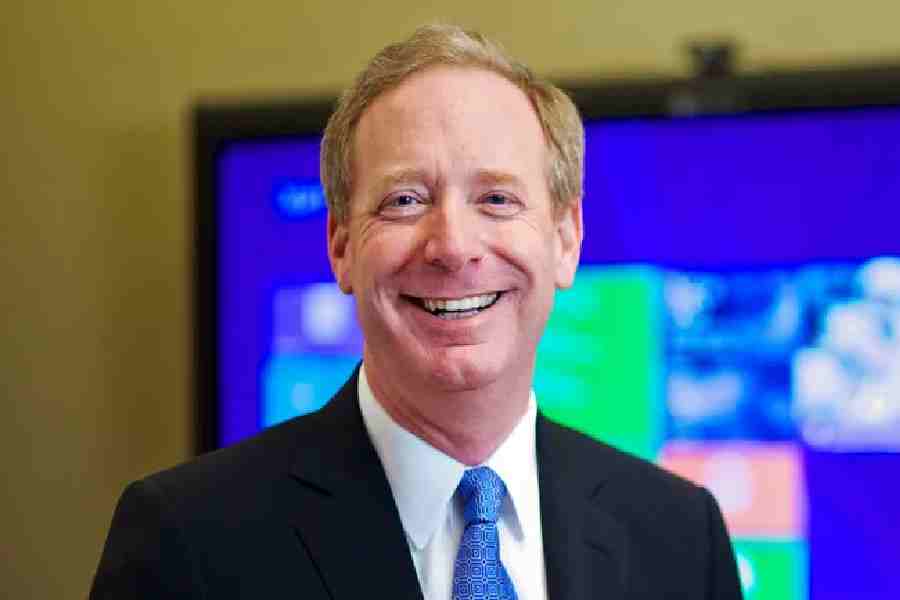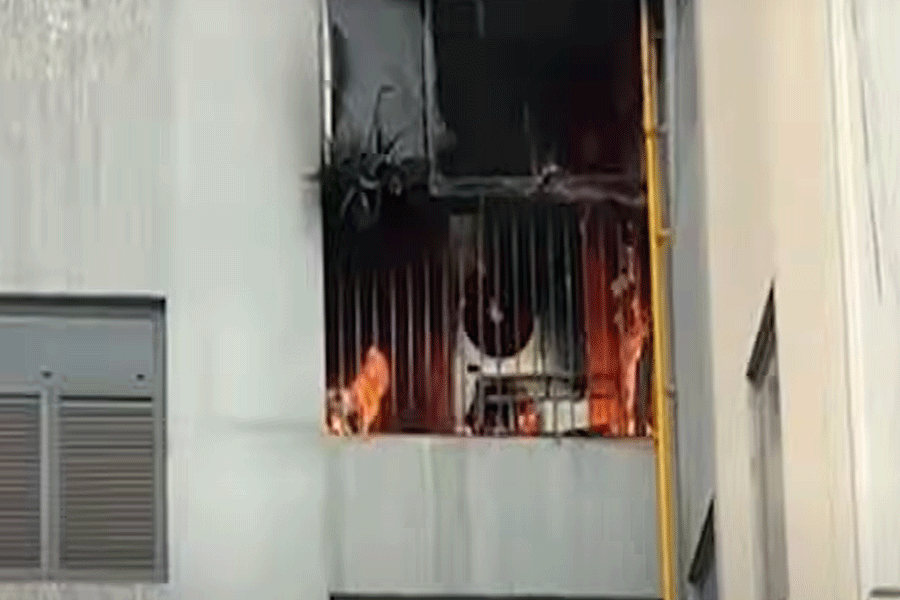For nearly three years of the war in Ukraine, Washington’s rallying cry in backing a fight against a Russian invasion was “no negotiations about Ukraine without Ukraine”.
But when President Donald Trump meets President Vladimir V. Putin of Russia in Alaska on Friday, the Ukrainians will not be there, barring any last-minute invitation. And Kyiv’s swift rejection of Trump’s declaration to reporters that he is already negotiating with the Russian leadership over what he vaguely called “land swaps”, with no mention of the security guarantees or arms supplies for Ukraine, underscores the enormous risks for the Ukrainians — and the political perils for Trump.
Ukraine’s fear for these past six months has been that Trump’s image of a “peace accord” is a deal struck directly between him and Putin — much as Franklin Roosevelt, Joseph Stalin and Winston Churchill divided up Europe at the Yalta conference in 1945. That meeting has become synonymous with historical debates over what can go wrong when great powers carve up the world, smaller powers suffer the consequences and free people find themselves cast under authoritarian rule.
Zelensky himself invited such comparisons in a speech to his people hours after Trump raised the spectre of deciding Ukraine’s fate in a one-on-one meeting in Alaska, territory that was once part of the Russian empire.
“Ukrainians will not give their land to the occupier,” Zelensky said, noting that the Ukrainian Constitution prohibits such a deal. Then, in what sounded like a direct warning to Trump, he added: “Any solutions that are against us, any solutions that are without Ukraine, are simultaneously solutions against peace. They will not bring anything. These are dead solutions.”
Zelensky is the one with the most on the line in the summit. After his bitter Oval Office encounter with Trump in February, which ended in Trump’s declaration that “you don’t have the cards right now”, he has every reason to fear Trump is at best an unreliable partner. At worst, Trump is susceptible to being flattered and played by Putin, for whom he has often expressed admiration.
But there are also considerable political risks for Trump. Those would be especially acute if he is viewed as forcing millions of Ukrainians into territorial concessions, with few compensating guarantees that Putin would not, after taking a breather of a few years, seize the rest of the country.
Trump’s personal envoy, Steve Witkoff, raised the possibility of a meeting of Trump, Zelensky and Putin, and in the past week, it looked like that might be a precondition for the session in Alaska. But Trump waved away the notion when asked about it by reporters on Friday.
A senior administration official said on Saturday that the President remained open to a trilateral meeting with Putin and Zelensky, but that the meeting between Trump and Putin was set to go ahead as scheduled.
Russian officials have demanded that Ukraine cede the four regions that Moscow claimed to have “annexed” from Ukraine in late 2022, even as some of that land remains under Ukrainian control. And Russia is seeking a formal declaration that the Crimean peninsula is once again its territory. (Yalta, where the meeting of three great powers was held 80 years ago, is a resort city on the southern coast of Crimea.)
Trump on Friday suggested that a peace deal between the two countries could include “some swapping of territories”, signalling that the US may join Russia in trying to compel Ukraine to permanently cede some of its land — the suggestion flatly rejected by Zelensky.
Yet the gap in how Trump approaches these negotiations and how the US’s allies in Europe approach them became all the more vivid on Saturday.
After a meeting of European national security advisers and Ukrainian officials with Vice President JD Vance, who is on a visit to Britain, leaders of the European Union’s executive branch and nations including France, Britain, Italy and Germany called in a statement for “active diplomacy, support to Ukraine and pressure on the Russian Federation to end their illegal war”.
They added that any agreement needed to include “robust and credible security guarantees that enable Ukraine to effectively defend its sovereignty and territorial integrity”, phrases Trump has avoided. “The path to peace in Ukraine cannot be decided without Ukraine,” the leaders said.
Until late last week, it appeared likely that the meeting between Trump and Putin would be held on the traditional neutral grounds of the old Cold War, perhaps in Geneva or Vienna. President Biden saw Putin in Geneva in June 2021.
Putin’s willingness to venture into American territory was striking, not least because his arrival in the US will signal the end of his political and legal isolation from the country. In the past few months, Trump has terminated efforts at the justice department and the state department to collect evidence of war crimes committed by Russia during its invasion of Ukraine. But inviting Putin to meet in the US seemed to extinguish any threat that the US would provide evidence to the prosecution.
“It’s bewildering how we could bring in somebody the International Criminal Court has classified as a war criminal,” said Jeffrey Sonnenfeld, the president of the Yale Chief Executive Leadership Institute, who has tracked many of the Russian violations.
But he emphasised that Putin is entering the meeting with Trump in an extraordinarily weak position economically, and that it would benefit US negotiators to realise how few cards Russia holds.
“The mystical illusion of power that Putin creates is as real as the Wizard of Oz,” Sonnenfeld said. “The Russian economy has been imploding. Trump doesn’t seem to realise that.”
Sonnenfeld cautioned Trump against any deal in which Ukraine would give up rights to the Donbas region, particularly given the agreement that the Trump administration negotiated for the US to share in future revenues from Ukraine’s mineral reserves through a joint investment fund.
“Giving up the Donbas would be disastrous,” he said. “That is where a lot of these valuable minerals are.”
New York Times News Service

